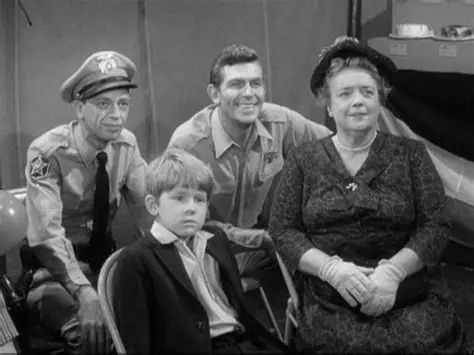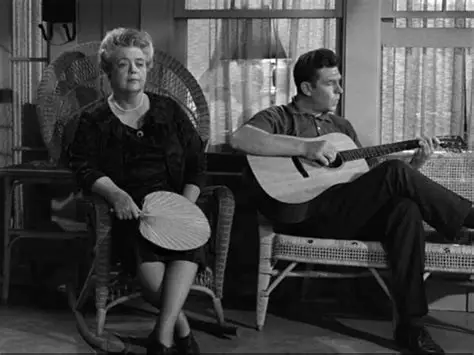
Introduction: The End of an Era
Let’s rewind the reel and walk back into Mayberry one last time. The Andy Griffith Show was never just a TV show—it was a slice of Americana. When it ended in 1968, it didn’t go out with a bang. There was no emotional farewell scene, no dramatic goodbye. And yet, its quiet ending remains one of the most memorable in television history. Why? Let’s dive in.
A Look Back at Mayberry
Mayberry was that small town where doors were always unlocked, and folks said “howdy” like they meant it. The show didn’t rely on big drama or outrageous plot twists. It focused on heart, humor, and humanity. That charm made Mayberry a cultural touchstone.
How the Show Revolutionized Television
For eight seasons, The Andy Griffith Show ruled the airwaves. At its peak, it drew in over 30 million viewers—back when the U.S. population was significantly smaller. Its mix of comedy and down-home values redefined what a family sitcom could be. It dared to be slow-paced, sentimental, and thoughtful—and that was exactly why it worked.
Setting the Stage for the Final Season
By Season 8, things had begun to shift. Andy Griffith himself was ready to move on. He had spent nearly a decade playing the warmhearted sheriff of Mayberry, and though he loved the role, he felt it was time to hand over the reins. But instead of canceling the show altogether, CBS had a different idea.
Season 8: A Different Kind of Mayberry
In its final season, The Andy Griffith Show began introducing new characters, like Sam Jones (played by Ken Berry), and giving them more screen time. The change was subtle but noticeable. Andy Taylor, once the heart of the series, slowly began fading into the background.
Meet Sam Jones: The Unexpected New Face
Sam Jones was a farmer, a widower, and a single father—sound familiar? CBS was clearly attempting to recreate the magic of Andy Taylor with a new face. By the finale, it was evident the torch had been passed. This wasn’t just an ending; it was a transition.

Why Andy Taylor Took a Backseat in the Finale
Andy Griffith’s character didn’t even appear in the final moments of the series. That’s right—no farewell speech, no teary goodbye. Instead, the finale focused on Sam Jones and his neighbors. Why? Because the final episode of The Andy Griffith Show was, in truth, a backdoor pilot for Mayberry R.F.D.
“Mayberry R.F.D.”: The Quiet Spin-Off That Took Over
Mayberry R.F.D. picked up right where The Andy Griffith Show left off. With the same town, same feel, and some of the same characters, it continued the Mayberry legacy. It even aired in the same time slot. The show lasted three seasons—but it never quite captured the magic of its predecessor.
How Fans Reacted to the Series Finale
For a show as beloved as The Andy Griffith Show, many fans felt robbed of a proper goodbye. Where was Aunt Bee? Where was Opie’s moment of reflection? Yet, the lack of a traditional finale somehow fit Mayberry’s understated charm. Life just went on.
The Symbolism in the Final Episode
Although it didn’t scream “series finale,” the last episode had its moments. It highlighted themes of community, change, and quiet resilience. And maybe that’s the point—Mayberry never needed fireworks to leave an impression. It was always about the small things.
What Was Missing from the Finale?
There’s no denying that the finale lacked closure for some characters. We never saw Andy say goodbye. We didn’t get one last walk down the main street or a final scene on the courthouse bench. But in a way, that made it more real. Life doesn’t always wrap up in a neat little bow.
Behind the Scenes: Cast Reactions to Saying Goodbye
Andy Griffith himself had mixed feelings about the end. He was proud of the show but ready to stretch his wings. Don Knotts had left two seasons earlier, but remained proud of the legacy. Ron Howard, who played Opie, once said that he didn’t fully understand how special the show was until years later.
The Legacy of the Finale: Still Echoing Today
Decades after it aired, the finale continues to spark discussion. It’s studied in TV writing courses as an example of a “non-finale finale.” And yet, the show didn’t lose its fanbase. If anything, its understated ending made it feel timeless.
Why The Andy Griffith Show Didn’t Need a Grand Goodbye
Would a more dramatic send-off have changed anything? Maybe. But The Andy Griffith Show never relied on theatrics. Its heart was always in the ordinary moments. A smile, a wave, a piece of pie. That’s the spirit that carried it through to the end—and beyond.
Where Are They Now? The Cast After the Finale
-
Andy Griffith went on to a successful second act with Matlock.
-
Ron Howard became an Oscar-winning director.
-
Don Knotts found new fame on Three’s Company.
-
Frances Bavier (Aunt Bee) retired from acting and lived quietly until her passing.
-
Ken Berry led Mayberry R.F.D. and continued working in television through the 1980s.
Conclusion: Why Mayberry Never Really Left Us
The series finale of The Andy Griffith Show didn’t shout. It whispered. And in that whisper was a powerful truth—life moves on. Not with spectacle, but with grace. That’s why Mayberry still lives in the hearts of those who watched. We didn’t need a curtain call to say goodbye. We just needed to remember what it felt like to sit on Andy’s porch and watch the world slow down.
FAQs About The Andy Griffith Show Finale
1. Why didn’t The Andy Griffith Show have a traditional series finale?
CBS used the last episode as a transition into Mayberry R.F.D., choosing to quietly continue the story rather than end it outright.
2. Did Andy Griffith appear in the final episode?
Yes, but only briefly. The focus had already shifted to Sam Jones, setting up the next show.
3. What was the final episode of The Andy Griffith Show called?
The final episode was titled “Mayberry R.F.D.” and aired on April 1, 1968.
4. Was there ever a reunion episode?
Yes, a made-for-TV movie titled Return to Mayberry aired in 1986, reuniting much of the original cast.
5. Why is the show still so popular today?
Its timeless themes of kindness, community, and simplicity resonate with viewers across generations. The show offers a comforting escape into a world where problems had heartwarming solutions.